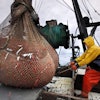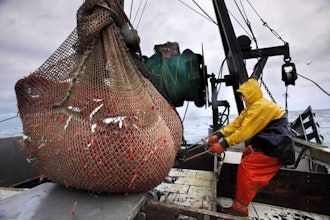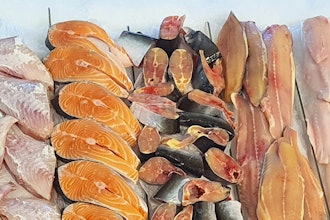
URBANA, Ill. – When you sit down for a nice dinner and sip a glass of wine, is your bottle of choice from France, Australia, or South America? Chances are the fine beverage you’re enjoying is imported from a major global wine producer.
Wine is one of the most heavily traded products worldwide. It is also a prime target for import tariffs, even though wine rarely has anything to do with the conflicts that trigger these measures.
A new study from the University of Illinois explores the economic costs of wine tariffs for producers and consumers in the global marketplace.
“Wine often becomes a punching bag in trade disputes. It gets targeted for cross-retaliatory measures and punitive tariffs imposed by parties in dispute,” says William Ridley, assistant professor of agricultural and consumer economics at U of I, and lead author on the paper, published in Food Policy.
Why is wine a popular target for these trade disputes?
One reason is wine producers are heavily reliant on export markets. And wine is a culturally significant product for many countries, Ridley says.
The European Union produces 60% of the world’s wine and accounts for 67% of global exports. Other large producers include the U.S., with 8.2% of the world’s output and 5% of wine exports, as well as Australia, Argentina, Chile, and China.
Wine has been caught in the crossfire of several recent trade disputes. In their study, the researchers focus on the impacts of two ongoing conflicts.
The U.S. and the EU have recently been engaged in a years-long dispute over subsidies to Boeing and Airbus aircrafts. Both parties have imposed tariffs on unrelated products in cross-sectoral retaliation. U.S. tariffs have targeted $4.5 billion worth of food and agricultural exports from Europe; wine accounted for one third of this. In 2019, the U.S. imposed 25% duties on beverages containing up to 14% alcohol. Both the U.S. and the EU had planned additional tariffs on wine import from each other, though these measures were placed on hold when the parties reached a temporary truce in 2021.
Another major dispute occurred between China and Australia, where China enacted tariffs of up to 212% on Australian wine imports. China claimed this was in response to dumping (Australian wine producers selling wine at an artificially low price), but it also aligns with ongoing political tension between the two countries. China is the largest foreign market for Australian wine, and the tariffs effectively halted this trade.
These instances of collateral retaliation in wine imports have led to substantial economic losses, the researchers find. The dispute between the U.S. and the EU cost $190 million in lost trade, while the China-Australia dispute cost $149 million – that’s a total of $339 million annually in trade disruptions; that is trade that no longer takes place and isn’t redirected elsewhere.
Consumers in the importing countries also suffer the consequences. U.S. wine consumers experienced a 4.1% reduction in consumer welfare, measured by changes in consumer prices. EU consumers, on the other hand, are better off. Because the tariffs hurt producers and result in lower exports, more wine is available in the domestic market. The EU exports far more wine to the U.S. than the other way around, so this benefits EU consumers more. The results are similar for the China-Australia conflict, with Chinese consumers bearing the brunt of the economic impact.
Ridley and his colleagues also conducted counterfactual simulations to show what would happen if there were no import tariffs at all. They found that complete trade liberalization would lead to approximately $76 million in new trade globally, and a 4% increase in the welfare of wine consumers.
Ridley says the findings can lead to policy recommendations.
“The World Trade Organization sets the rules for how trade conflicts can proceed, and cross retaliation is one of the tools they allow countries to adopt,” he says.
“However, tariffs are inherently distortionary and have a negative net effect. You can say the tariffs protect certain domestic industries, because you're shielding them from foreign competition. But you’re making your own consumers worse off, because you’re putting a tax on things they buy. It's not difficult to show the negative effects almost universally outweigh any positive effects.”
Tariffs, including those on wine imports, have also contributed to the economy-wide inflation that has persisted in recent months, Ridley explains.
“When imports face tariffs, consumers are left paying higher prices, regardless of whether they’re buying foreign or domestically produced goods. While this isn’t the sole cause of the recent inflation, it’s unambiguously a contributor to it,” he concludes.
The Department of Agricultural and Consumer Economics is in the College of Agricultural, Consumer and Environmental Sciences at the University of Illinois.
The paper, “Wine: The punching bag in trade retaliation,” is published in Food Policy [https://doi.org/10.1016/j.foodpol.2022.102250]. Authors are William Ridley, Jeff Luckstead, and Stephen Devadoss.
The research was supported by the USDA National Institute of Food and Agriculture, Agricultural and Food Research Initiative Competitive Program, Agriculture Economics and Rural Communities , grant # 2022-67023-36382.






















